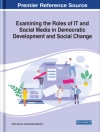Through a series of letters, Virginia Woolf’s powerful and provocative extended essay confronts the intertwined issues of fascism, feminism, and war.
Written as a response to three separate requests for donations from feminist organisations, Three Guineas explores the broader questions of women’s roles in society, the pursuit of justice, and the resistance against oppressive systems. Woolf articulates her vision for a society where women are free to pursue education, careers, and intellectual independence—free from the constraints of patriarchal expectations.
First published in 1938, Three Guineas is not just a reflection on the societal challenges of Woolf’s time but also a timeless statement on the feminine purpose and the need for solidarity in the face of tyranny and violence. It remains an essential read for anyone interested in the intersection of gender, politics, and social justice.
About the author
Virginia Woolf (1882–1941) was an English writer, born in South Kensington, London. Known for her feminist writings and pioneering work with the narrative style of stream of consciousness, Woolf is widely considered to be one of the most influential modernist writers of the 20th century. Some of her most famous works include Mrs. Dalloway, 1925, To the Lighthouse, 1927, and A Room of One’s Own, 1929.












